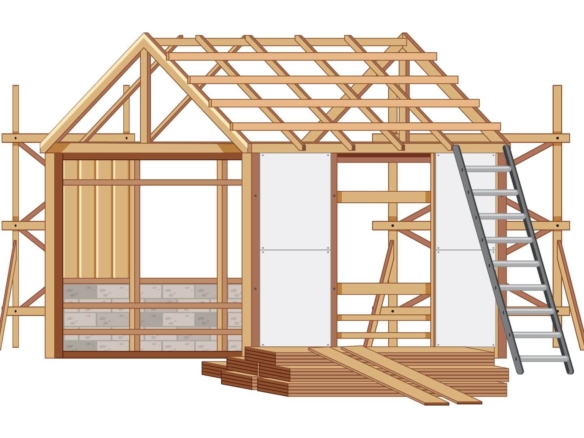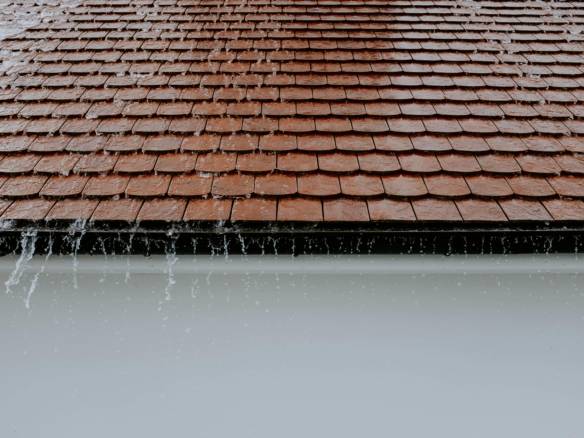When it comes to roof repairs there’s no time to waste messing about with incompetent or unreliable roofing contractors. The roof is the most important part of your home because when that fails you are left with an insecure home vulnerable to things like pests, weather damage, and extreme cold in some seasons.
The chances are when you are looking for a roofing contractor it’s because you are facing some kind of emergency, or have a fairly urgent job you’d like to get fixed before it deteriorates into something major. Still, rather than rush in and hire the first people who answer their telephone think logically. Even if you are in a mad hurry there’s little point in giving the work to a company who will not make a good job of it, leaving you with the task of having their work fixed as well as the original problems.
It may seem like an almost impossible task to pick a good roofing contractor from the many who are out there looking for business, but there are ways to make it easier. One of those involves gathering key pieces of information about the contractors, covering things ranging from their backgrounds and experience to their visions and attitude. We’ve even gone so far as to pull together the questions you can use as a guide to get this information before hiring a roofing contractor into a handy checklist to help you out.
1. What is the contractor’s company name and land-based address?
It’s really important that you check out this is real too, as a genuine physical address for a company helps to reassure you they are a legitimate business. Plus, should you need to contact them down the line you will know where to find them. Always be wary of less than reputable roofing companies who appear when there is something like storm damage but have no local ties.
2. Are they able to actually do the job?
Ask for information (and evidence) of their qualifications, experience and license, checking the latter is suitable for your locality. You can also ask for pictures of previous work done, and get the contact information for a couple of previous customers so you can follow up in person.
3. Can they show you proof of their insurance?
You need to see evidence of both public liability and employee insurance with a high-end maximum payout. The public liability policy avoids you taking the fall for any harm caused to the public or their property by the roofing contractors while working on your roof. The workers’ insurance protects the people working on your roof themselves.
4. Do they use subcontractors?
How much of an issue (if any) this is probably comes down to your personal preferences, but if you are happy to go ahead with subcontractors treat them the same way you would any other roofing contractor – looking for evidence of skill, experience, licensing, and direct customer reviews and recommendations.
5. Do they plan to remove your current roof before beginning the repair?
If a roofing contractor claims this is not necessary to complete the job be very wary. Unless you are looking obviously minor at something like one or two damaged tiles, most roofs can only be properly repaired if they remove things like old shingles and see how things are actually looking. If there are problems such as rotting wood or weak spots it can get attention right away, rather than being left to deteriorate and cause more problems down the line.
6. What kind of equipment will you use to get onto the roof?
A good roofing contractor will use standoffs or ladder stabilizers to avoid the gutters being damaged during the roof fixing process.
7. How do you deal with the waste materials?
Look for a roofing contractor who brings a suitable container to collect waste materials, and then takes on the responsibility of disposing of them properly afterwards at no further cost to yourself.
8. What happens if the weather is too bad to work on the roof?
Nobody can always accurately predict the weather, but you need to know there are sensible plans in place to make sure your roof is protected from the elements when unattended, and fully protected should the weather be so bad it is impossible to work on it for a period of time.
9. How long is the warranty offered on the new roof (or on the repairs done)?
A complete new roof should be good for at least 25 years, and repairs for a decent length of time. If you are not sure the warranty time quoted is fair try calling a few other companies to get an idea of comparison quotes.
10. What provision does the roofing contractor plan to make to care for your landscape?
If you don’t mention this and come to some kind of understanding you could easily find your flowers and shrubs walked on, any grass in your yard torn up, entrances to driveways blocked and so on.
11. Is the roofing contractor willing to provide a written estimate?
Any decent company would do this, and keep you updated as to how things are going, as well as provide receipts for costs without any prompting. Experienced contractors shouldn’t forget to add in the cost of regular tasks either, which would leave you with an additional fee to find.
You can see just from these eleven points to ask about that choosing a roofing contractor isn’t something you can rush into; although in an emergency situation these still provide an excellent framework to avoid making a costly, or even a dangerous, mistake. Landing up with a terrible contractor really is a nightmare that some people live through, so take up every possible precaution you come across.



